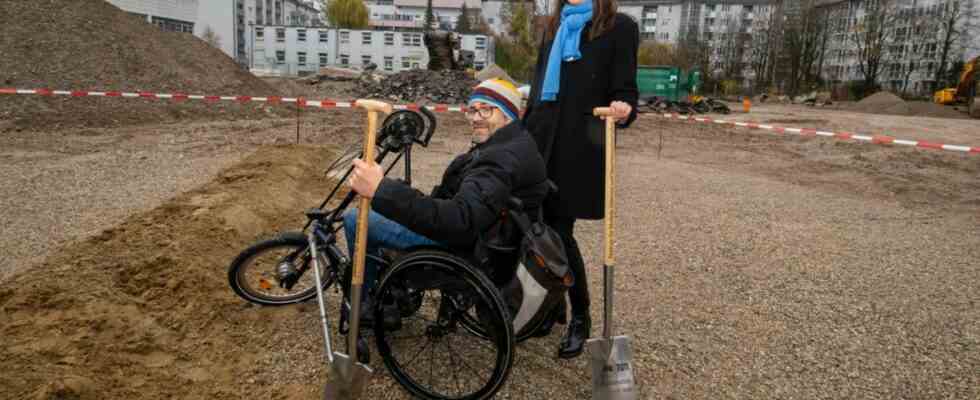The Klinikum Rechts der Isar is digging deep into its pockets – and is building what it says is a unique project: At the Center for Multiple Sclerosis and Neurosciences, basic research and new therapeutic approaches are to be brought directly to the patient in the future. The ground-breaking ceremony was held on Trogerstrasse on Tuesday, and the building should be finished in 2025.
Markus Blume, the Bavarian Minister for Science and Art, spoke of an “act of humanity” at the ceremony. Multiple sclerosis is a “real widespread disease”. In Germany, around 250,000 people suffer from it, and 15,000 new ones are added every year. In the year 2000 patients are cared for at the clinic on the right of the Isar.
It is unclear why someone develops MS – genetic factors play a role, viral infections are suspected to be a contributing factor; more women fall ill than men and more people in the northern parts of the world than near the equator. It is known that the protective covers of the nerve tracts, i.e. the cable insulation, are attacked and destroyed by the body’s immune system. This leads to a wide range of symptoms, from numbness, vision, coordination and concentration disorders to paralysis. The disease is not yet curable, but medicine has made great progress in keeping it under control in recent decades. As a result, most MS patients can now lead relatively normal lives.
This is what the new center for multiple sclerosis and neuroscience will look like when it is finished.
(Photo: doranth post architects)
The planned new building behind a row of houses on Trogerstraße opposite the Translatum is to cost 54 million euros and, according to the clinic, combines competencies like few other locations in Europe. The Free State is contributing 12 million euros, and the Klaus Tschira Foundation has taken on a large part of the rest. Klaus Tschira was a co-founder of the software giant SAP and in 1995 contributed his fortune to a foundation intended to promote science. Lilian Knobel, the foundation’s managing director, said: “Successful science thrives on communication – and it also needs excellent buildings and infrastructure in order to be able to develop.” Both will be realized in the new MS center.
Another novelty is that the Free State is not the client, as is usually the case with university buildings, but that it has transferred this function to the clinic. Minister Blume used this for a small dig at the state building authorities – so far, all processes in the planning phase have been completed faster than usual. “You can see what it means when someone goes to work with energy and passion.”
Thomas Hofmann, President of the TUM, said: “With the new building we are creating something unique. We are bundling our competencies from basic research, the development of new diagnostic methods and innovative therapy approaches to the acute clinical treatment of people suffering from multiple sclerosis under one roof. ” This gives those affected and their families new hope.

